I am an amateur astronomer. Friends sometimes ask me what I like most about astronomy. My answer usually surprises them. “It teaches patience.” While it is true that standing under a dark sky glowing with ancient light from uncountable stars brings sublime joy, the process of capturing those precious moments requires patience. The Earth’s stately rotation does not speed up to accommodate busy schedules, nor do the constellations and galaxies rise or set on our timetable. They move across the night sky as they have for billions of years at their own pace. If you want to see them through a telescope, you must wait until they are ready to reveal themselves. Or not.
Sometimes, the meticulous planning is for naught. Despite hours of careful planning and painstaking preparation, errant clouds, unexpected humidity, or a slight breeze can convert pinpoints of light into smudgy blobs or angry fireflies. Even when the “seeing” conditions are perfect, the stars, nebulae, and galaxies you seek may be below the horizon or too near the ever-present glow of civilization. So, you wait. On average, objects rise in the east and set in the west at 15 degrees per hour. A two- to three-hour wait for an object to rise above the hills and treetops is typical. Every amateur astronomer has waited five or six hours in freezing cold to see something special.
And every astronomer has experienced unmet expectations—a supernova too dim to pierce the reflected light from empty parking lots with football stadium lighting, a total eclipse hiding behind a defiant cloud, a night sky that has turned to mush because of a tiny increase in air moisture. When that happens, we lovingly pack our gear and wish one another “clear skies,” the salutation astronomers use when parting company. And then we immediately check our astronomy apps for the next observing opportunity.
As I write, I am waiting on a bus in a “dark sky” viewing spot outside of Fairbanks, AK, for our second night of observing the Northern Lights. It is cloudy now, but clouds move constantly, and astronomers are always hoping for clear skies.
My Managing Editor and traveling companions have urged me to take a night off from interpreting the news. We are under the thrall of a celestial display that involves a complicated dance between the sun and earth, the earth’s mantle and its core, and solar winds and our fragile atmosphere. The effects of that complicated dance are stunningly beautiful. (See the last two pictures below.)
So, as we sit patiently in the dark and cold (-1 degree Fahrenheit), we have re-calibrated our internal clocks to sidereal time, waiting and watching for the right moment. The wait is worth the reward. The preparation is worth the effort. The measure of success is not defined by tonight but by the nights to come. Patience. With planning and preparation, we will be ready for that moment of joy when it presents itself.
So, too, with democracy. Patience. Planning. Preparation. Joy.
Talk to you tomorrow!
Picture 1: The Alaska Range, taken from Alaska Railroad Aurora Winter Train (Sony Alpha 7iii, Lens Sony GM FE 2.8 70-200 mm; shutter priority set to 1/2000).
Picture 2: The frozen Chulitna River. Picture taken from the Hurricane Gulch trestle, Milepost 284.1
Picture 3: Lead locomotive on Aurora Winter Train, on a bend near Windy Creek, Milepost 319.5
Picture 4: Moose trudging through snow. One of about two dozen observed from Aurora Winter Train between Anchorage and Fairbanks.
Picture 5: Aurora Borealis (Northern Lights) on February 18, 2023, outside of Fairbanks, Alaska. Lens: Sony GMII 24-70mm. Set to manual mode, 24 mm, with a 3-second exposure; F2.8; 5000 ISO; manual focus set to infinity. Processed in Lightroom; dehazed 25%, radial-gradient applied to increase exposure in lower right corner to show abandoned truck.
Picture 6: Robert Hubbell and Jill Bickett (Managing Editor) under the Northern Lights! Same settings as above.



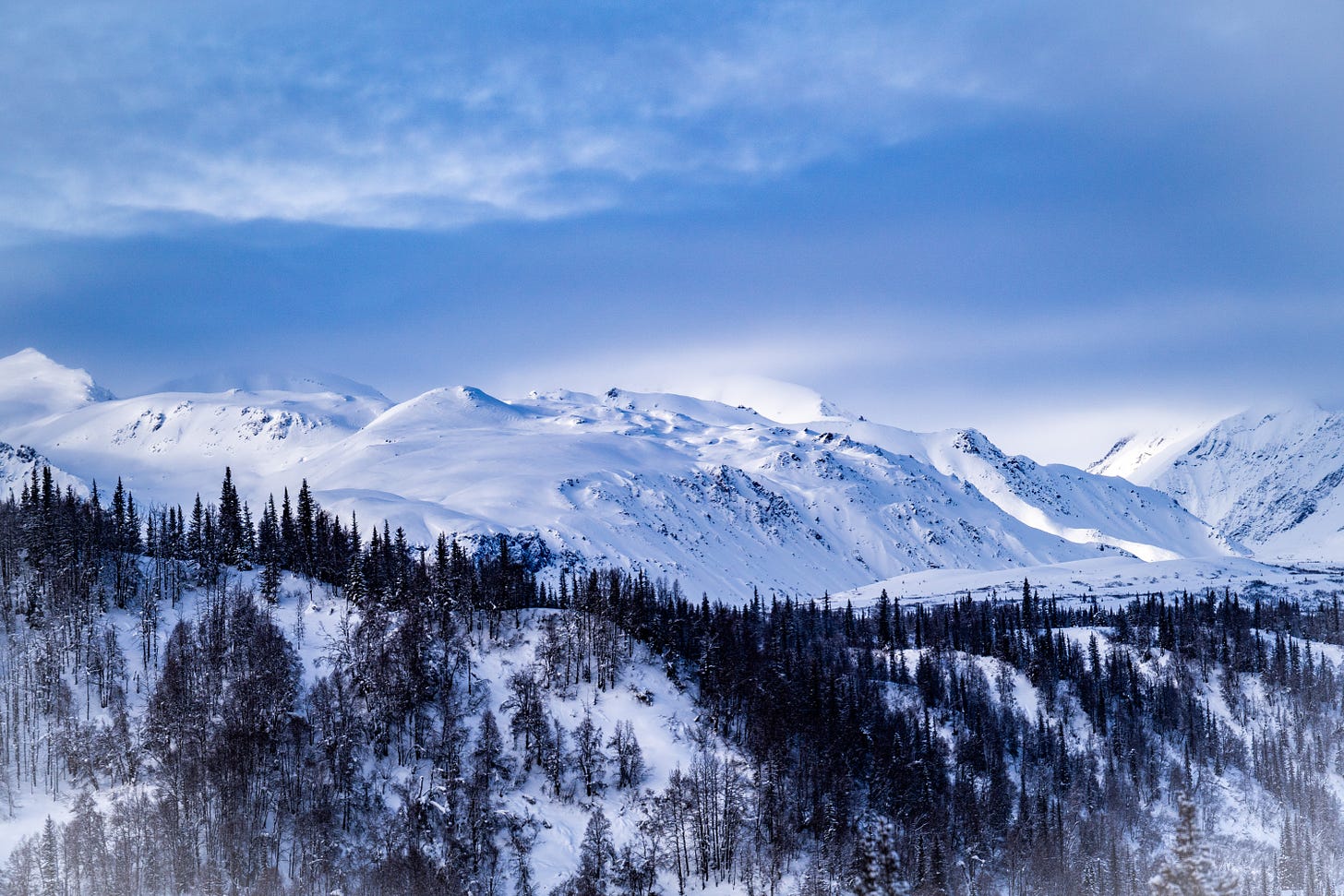
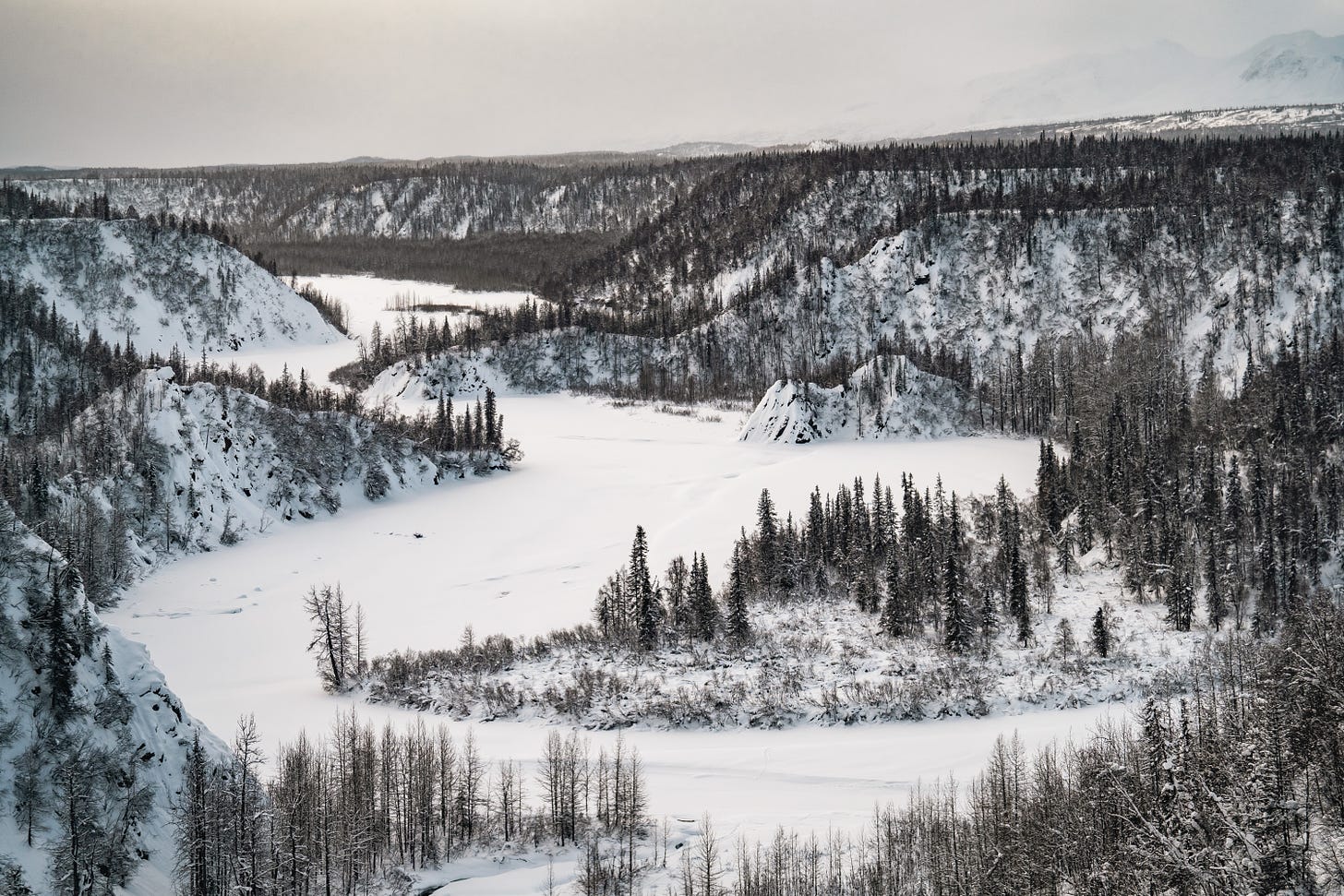
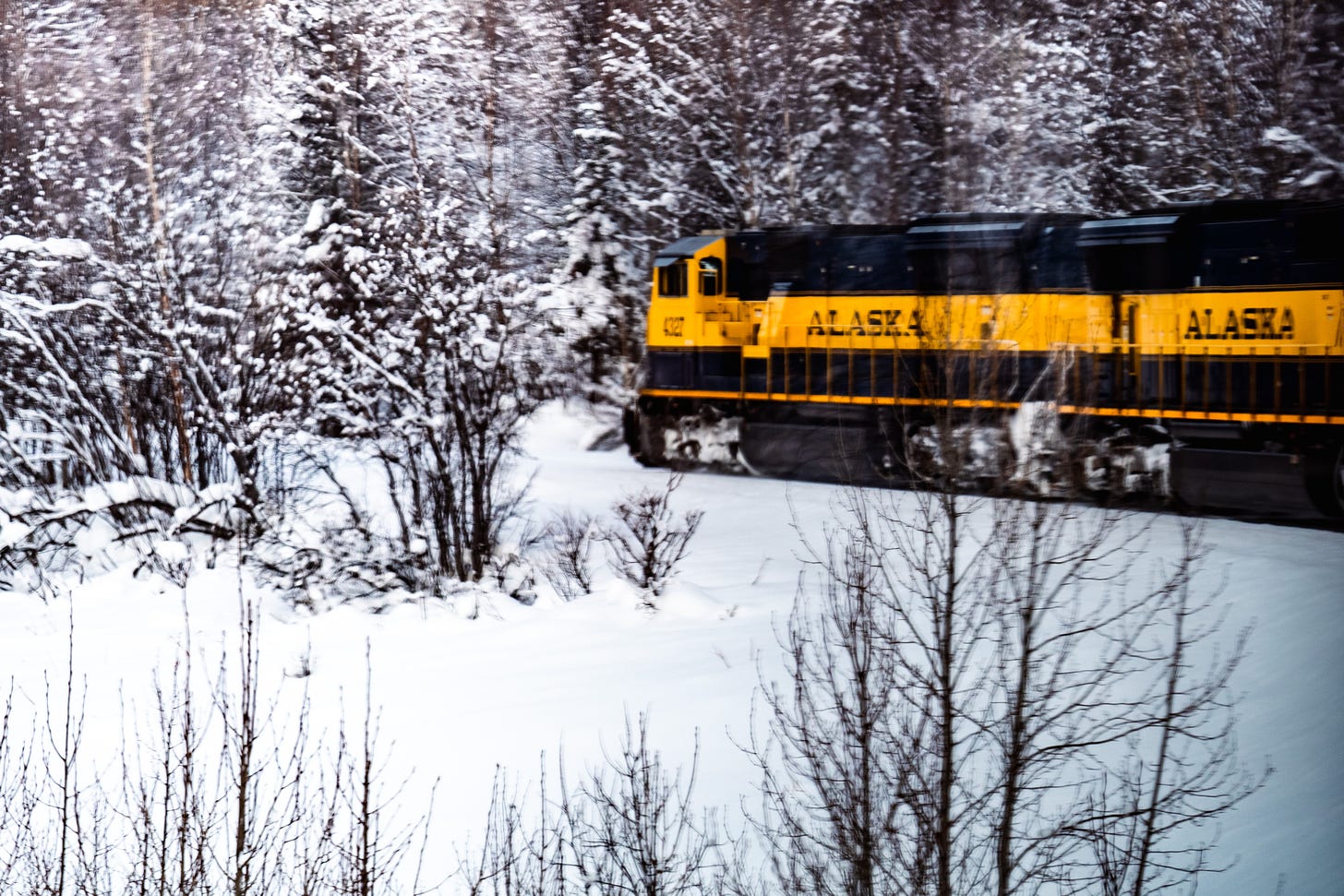
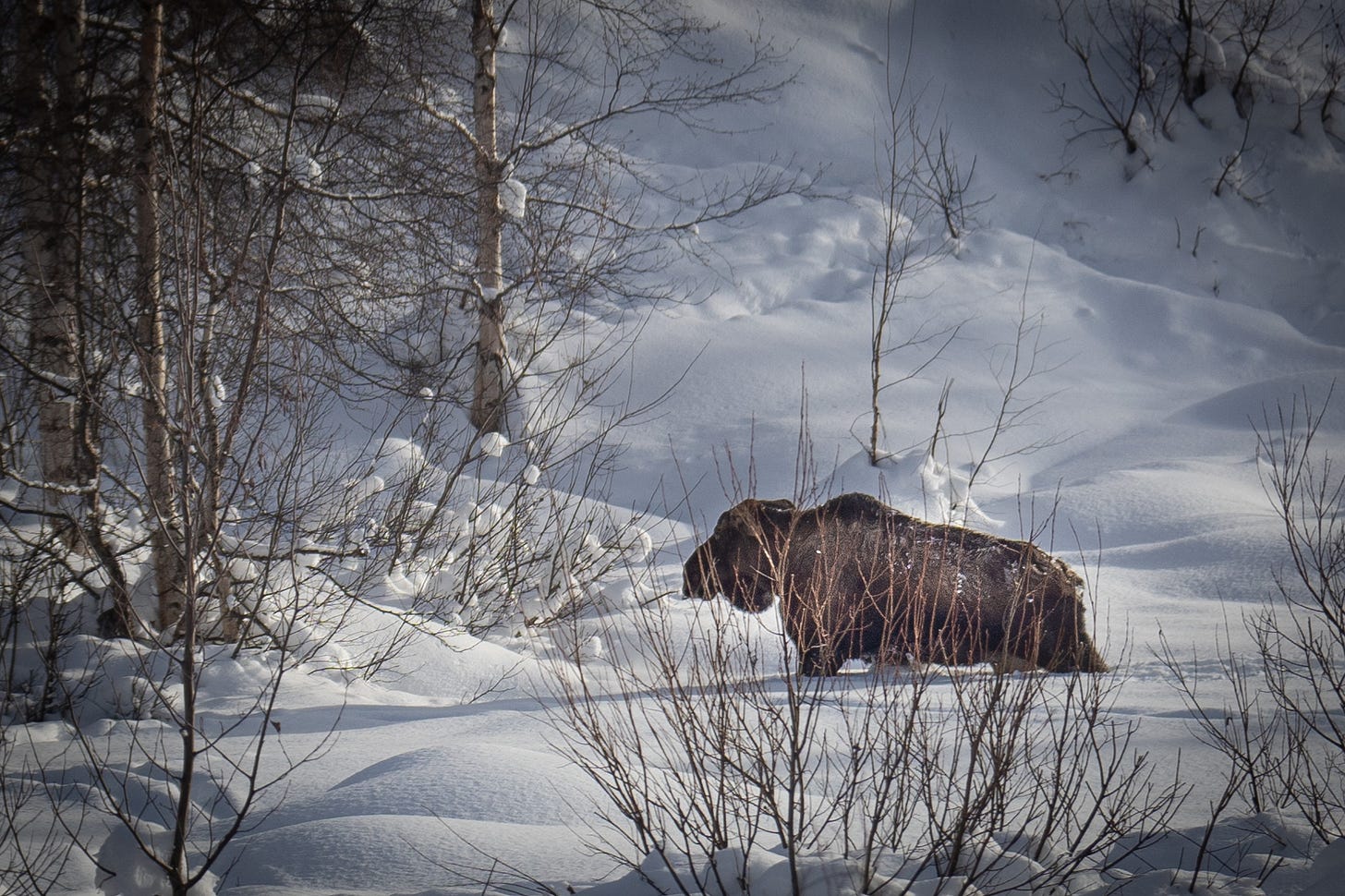
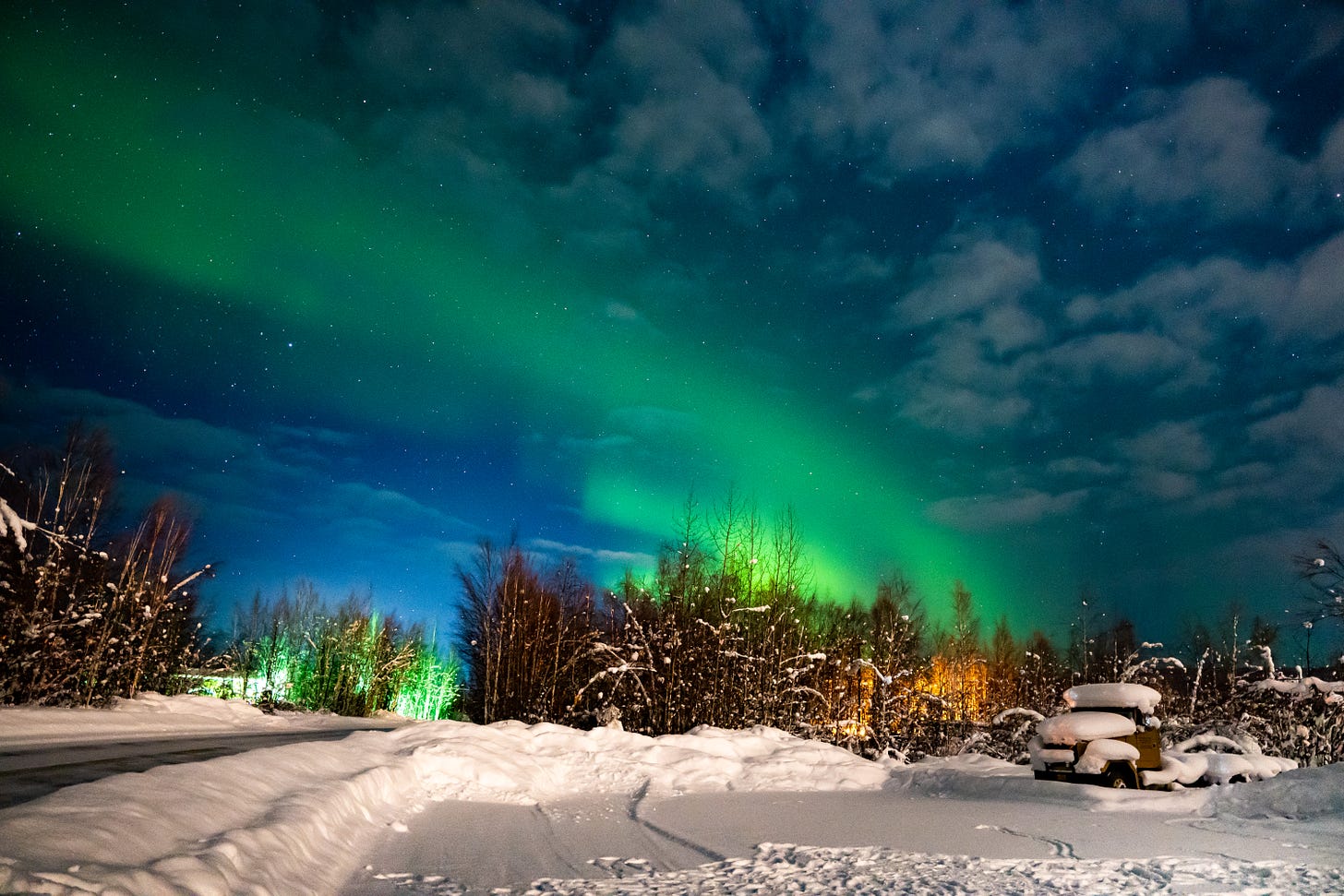
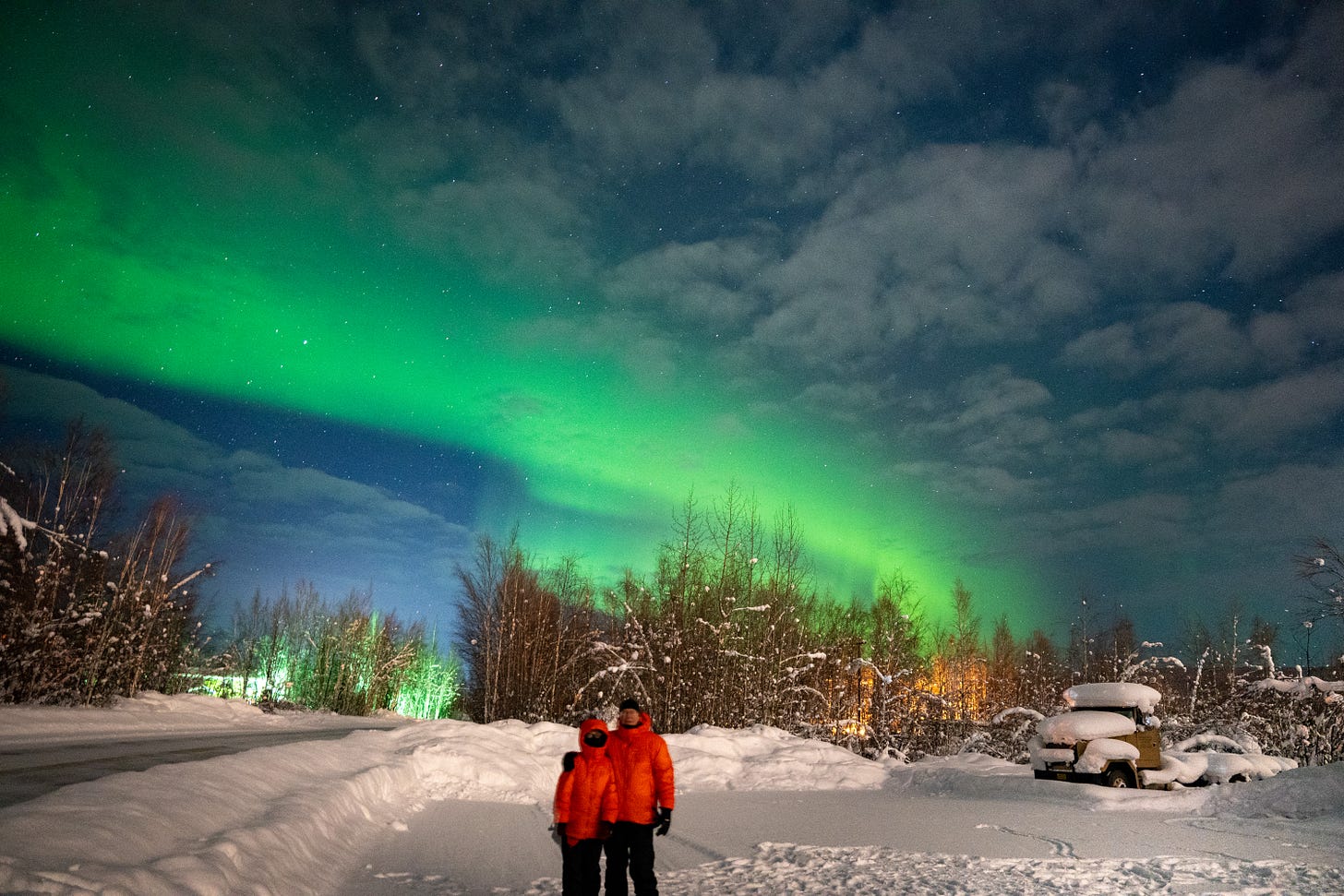
What a gift, your piece from Alaska about astronomy, astronomers and looking into the night sky. The photos are another gift and the settings yet a third. Thank you. LA.
Fabulous pictures. Thank you for posting. Wishing you a quiet week so you and Jill may enjoy the peacefulness of Alaska in winter.